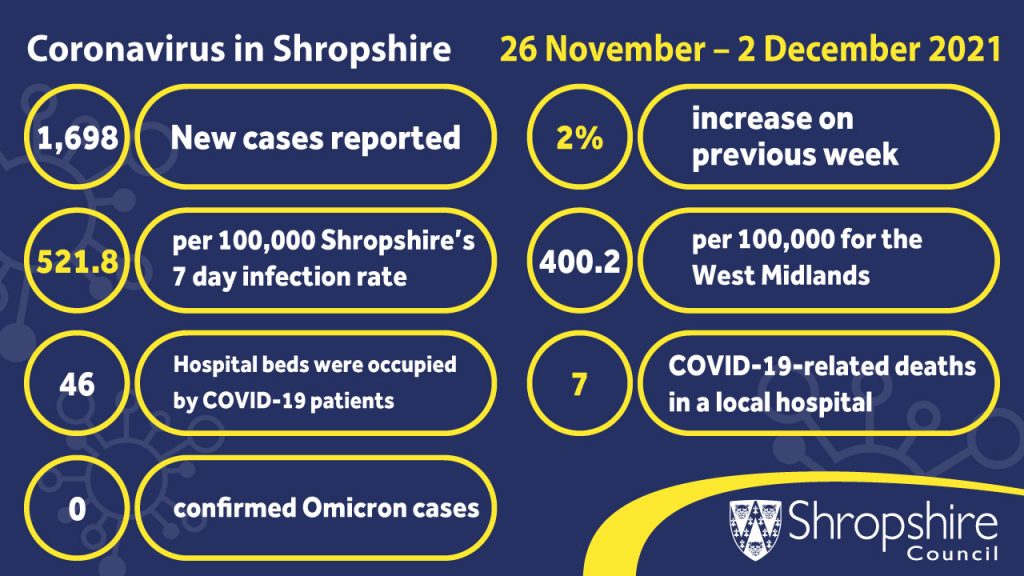Coronavirus: No confirmed Omicron cases in Shropshire to date
During the seven-day period between 26 November - 2 December 2021:
- 1,698 new COVID-19 cases reported
- An increase of 2% on the previous week
- 0 confirmed Omicron cases
- The 7-day infection rate for Shropshire was 521.8 per 100,000
- It was 400.2 per 100,000 for the West Midlands, and 476.1 for England
- 46 hospital beds were occupied by COVID-19 patients
- 7 COVID-19-related deaths in a local hospital

Weekly figures: 26 Nov – 2 Dec
Rachel Robinson, Shropshire Council’s director of public health, said:
Cases remain high in Shropshire, but as of yesterday (Wednesday 8 December 2021) we currently have no confirmed Omicron cases; however, we do have a small number of suspected cases. We do, however, know that there is rapid spread of the Omicron variant in the UK; we now have 568 cases in the UK.
The UK Health Security Agency is leading the ongoing investigation into the variant and we are working closely with them to ensure all appropriate actions to identify close contacts and arrange testing are completed.
As per the national guidance, all close contacts of a suspected or confirmed Omicron should currently self-isolate for 10 days. We are awaiting clarification from the Government and UKSHA on the option to use daily testing for contacts. We still do not know the full impact of the Omicron variant, but early indications show it is more transmissible, so it’s important that you do follow the advice from the national or local NHS Test and Trace teams when contacted.
We now know that England will move to Plan B. This means from Friday 10 December face coverings will become compulsory in most public indoor venues, such as cinemas, theatres, libraries and places of worship. From Monday 13 December, those who can will be advised to work from home. And from Wednesday 15 December, and subject to Parliamentary approval, the NHS COVID-19 Pass on the NHS App will become mandatory for entry into nightclubs and settings where large crowds gather.
Please be extra cautious at this time and ensure you take up the COVID-19 vaccines when they are offered. Continue testing, particularly before going to a high risk setting, and regular hand washing, keeping indoor areas well ventilated and social distancing where necessary will help to keep us all safe.

